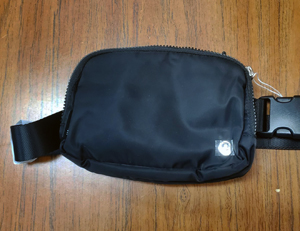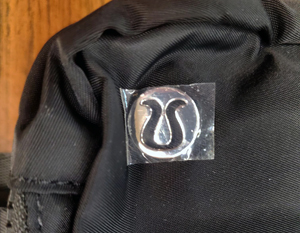WILMINGTON, Del. – Some say that imitation is the sincerest form of flattery, until that imitation runs afoul of the law.
U.S. Customs and Border Protection officers seized 277 counterfeit Lululemon Everywhere Belt Bags recently in Delaware, that had they been authentic would have been worth about $13,000.
The belt bags arrived in two separate shipments from China and were destined to the same address in Wilmington, Del. CBP officers inspected the shipments -- the first on August 8 of 136 belt bags and the second on August 16 of 141 belt bags. Officers suspected that the Lululemon branding may have been used without authorization and detained the shipments to verify trademark authenticity.
CBP officers submitted product documentation and photographs to CBP’s trade experts at the Consumer Products and Mass Merchandising Center of Excellence and Expertise (CEE) for analysis. CBP’s trade experts verified that the Lululemon Everywhere Belt Bags were counterfeit and subject to seizure pursuant to CBP’s statutory and regulatory authorities.
CBP officers seized the first shipment on August 26 and the second shipment on September 6.
The international trade in counterfeit consumer goods is illegal. It steals revenues from trademark holders, steals tax revenues from the government, funds transnational criminal organizations, and the unregulated products potentially threaten the health and safety of American consumers.
Counterfeiters manufacture consumer goods using substandard materials and parts that either break prematurely or that could hurt consumers. Counterfeit consumer goods may also be sourced or manufactured in facilities that employ forced labor.
For more information about the consequences and dangers often associated with the purchase of counterfeit goods visit the Truth Behind Counterfeits public awareness campaign website at CBP’s Fake Goods Real Dangers webpage.
“Popular products, such as Lululemon belt bags, are prime targets for counterfeiters to manufacture, and are revenue generators for unscrupulous vendors who worship profits over consumer health and safety,” said Erik Kelling, CBP’s Port Director for the Port of Wilmington. “CBP urges consumers to protect themselves and their families by always buying authentic products from reputable vendors.”
CBP protects businesses and consumers every day through an aggressive Intellectual Property Rights (IPR) enforcement program. During fiscal year 2023, CBP made nearly 20,000 seizures with an estimated manufacturer’s suggested retail price worth over $2.76 billion, had the goods been genuine.
Media can search for additional enforcement details by viewing CBP’s IPR webpage or by viewing CBP’s IPR Dashboard and CBP’s Annual IPR Seizures Reports.
U.S. trademark and copyright owners can register with CBP to have their intellectual property protected at the border through the through the e-Recordation program (https://iprr.cbp.gov/s/).
CBP encourages anyone with information about counterfeit merchandise illegally imported into the United States to submit an e-Allegation. The e-Allegation system provides a means for the public to anonymously report to CBP any suspected violations of trade laws or regulations related to the importation of goods in the U.S.
CBP's border security mission is led at our nation’s Ports of Entry by CBP officers and agriculture specialists from the Office of Field Operations. CBP screens international travelers and cargo and searches for illicit narcotics, unreported currency, weapons, counterfeit consumer goods, prohibited agriculture, invasive weeds and pests, and other illicit products that could potentially harm the American public, U.S. businesses, and our nation’s safety and economic vitality.
See what CBP accomplished during "A Typical Day" in 2023. Learn more at www.CBP.gov.
Follow the Director of CBP’s Baltimore Field Office on Twitter at @DFOBaltimore for breaking news, current events, human interest stories and photos, and CBP’s Office of Field Operations on Instagram at @cbpfieldops.



